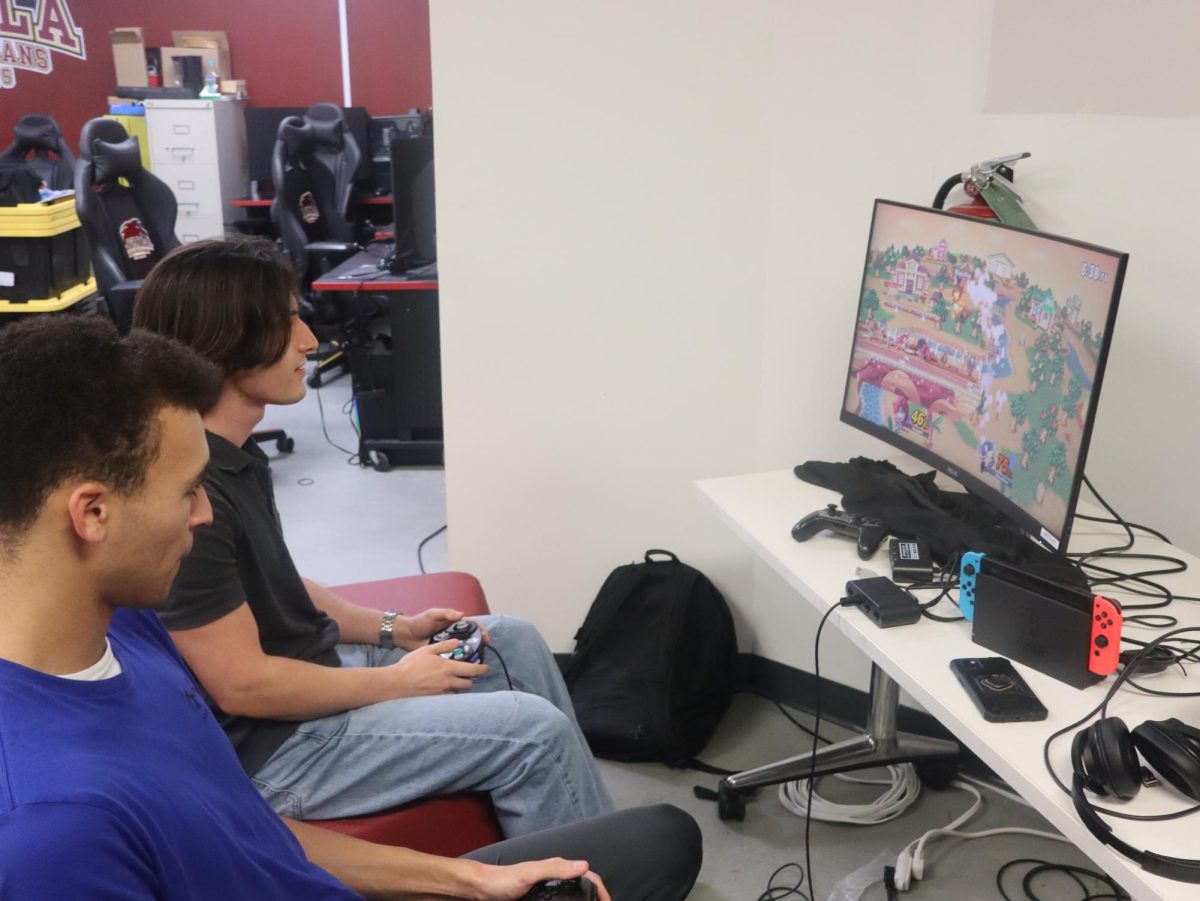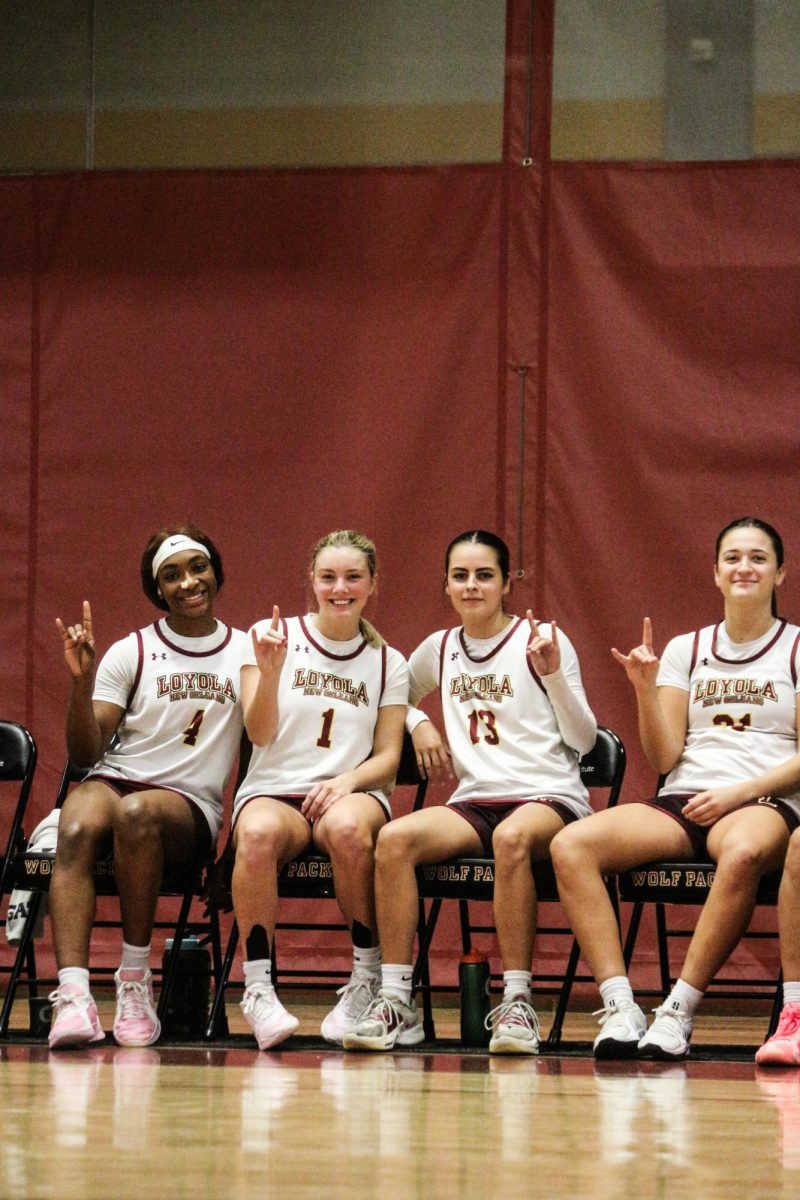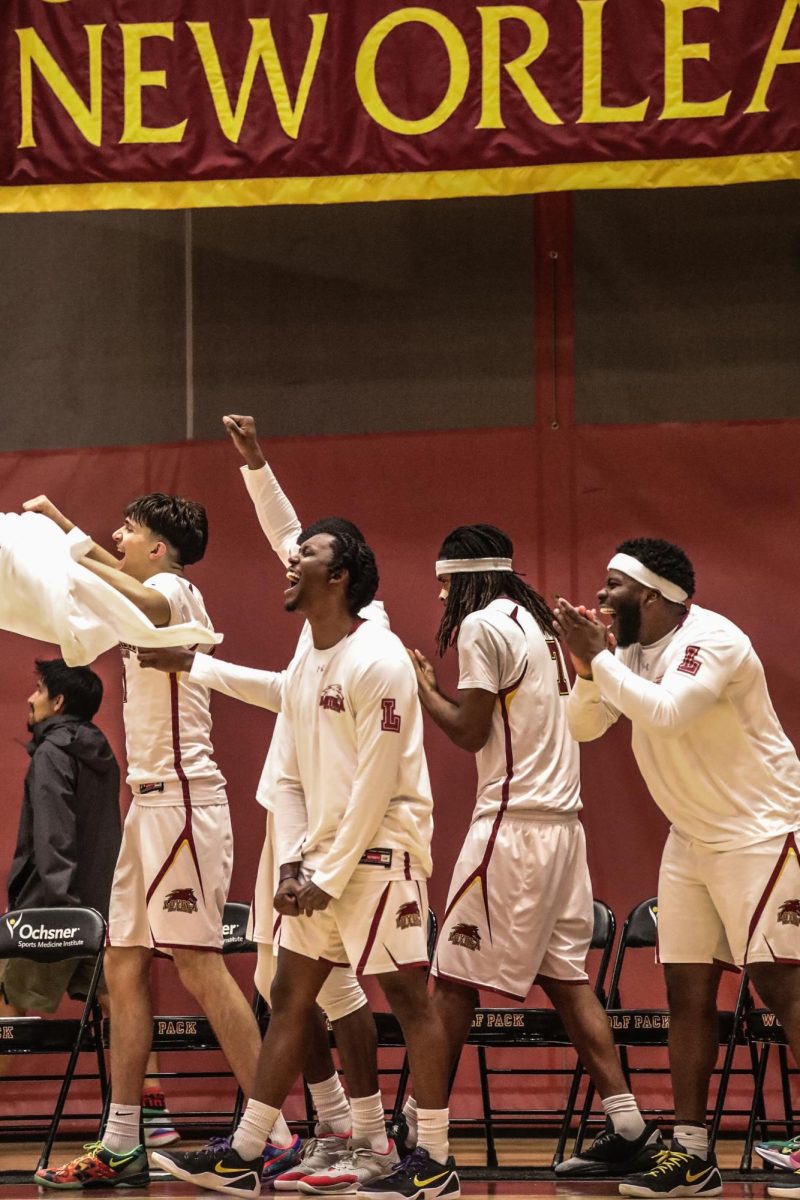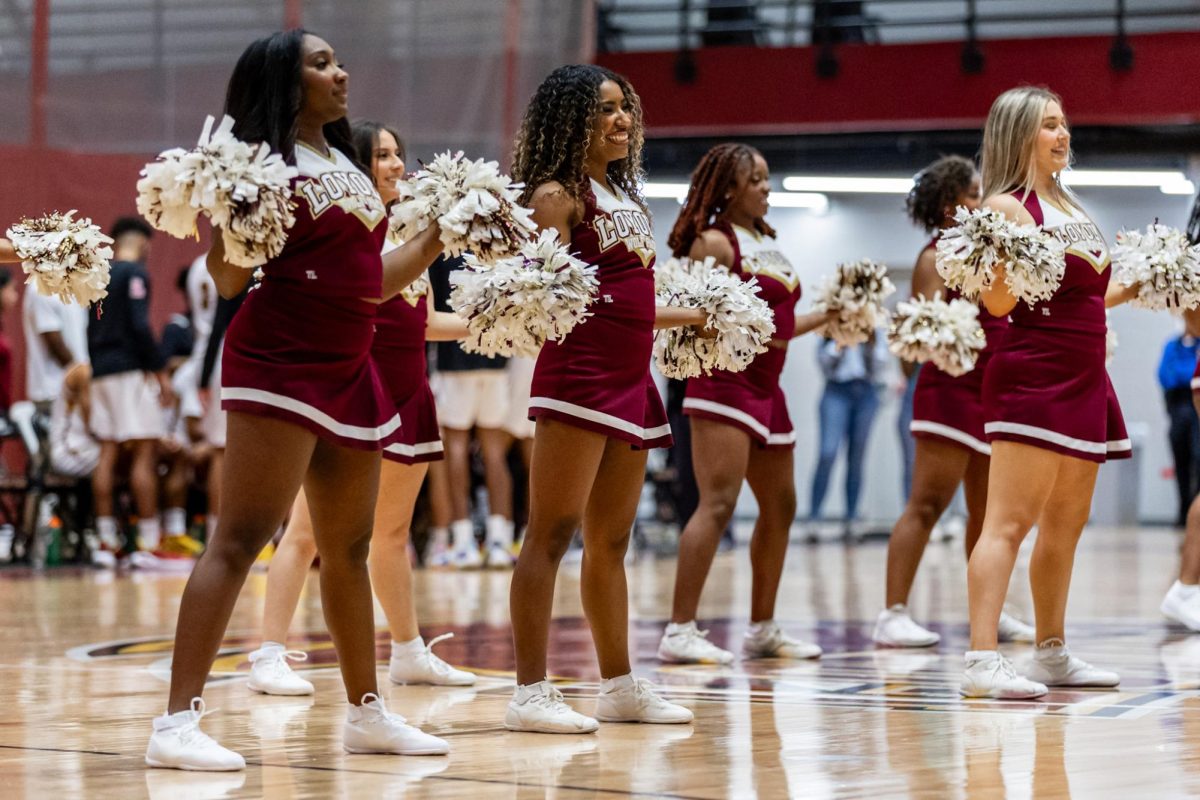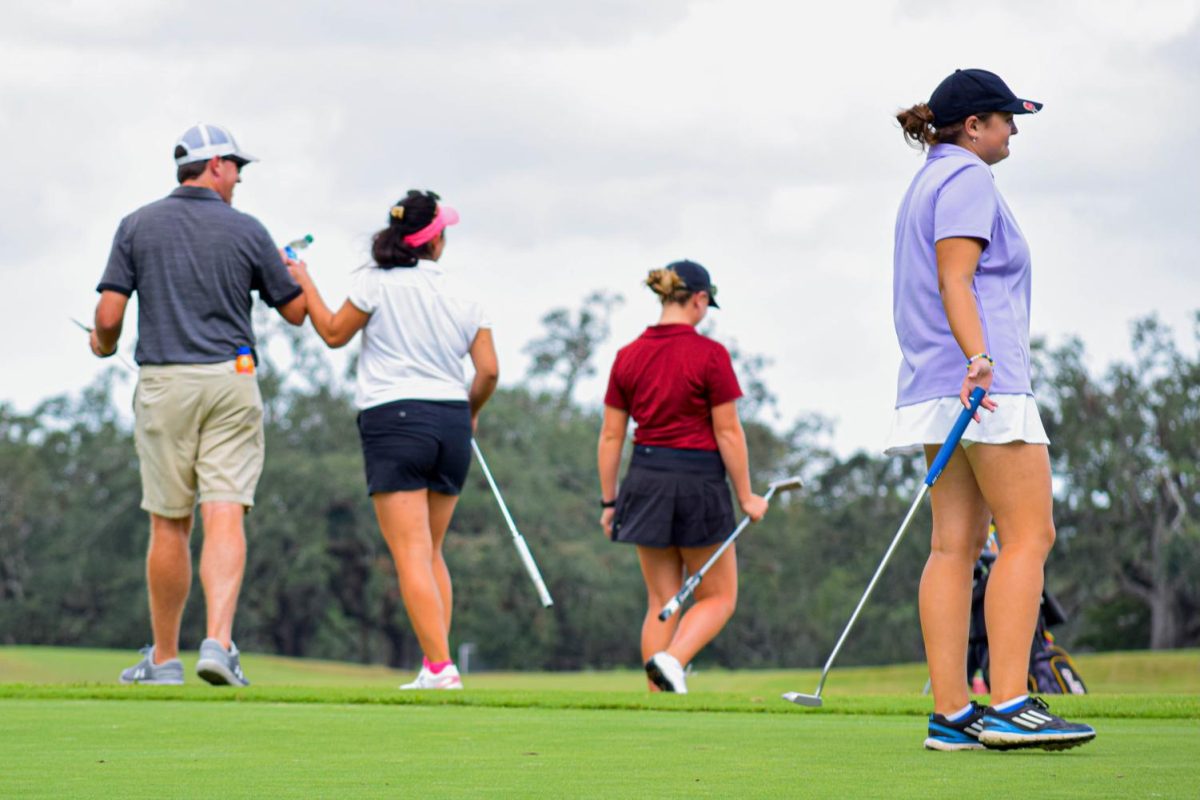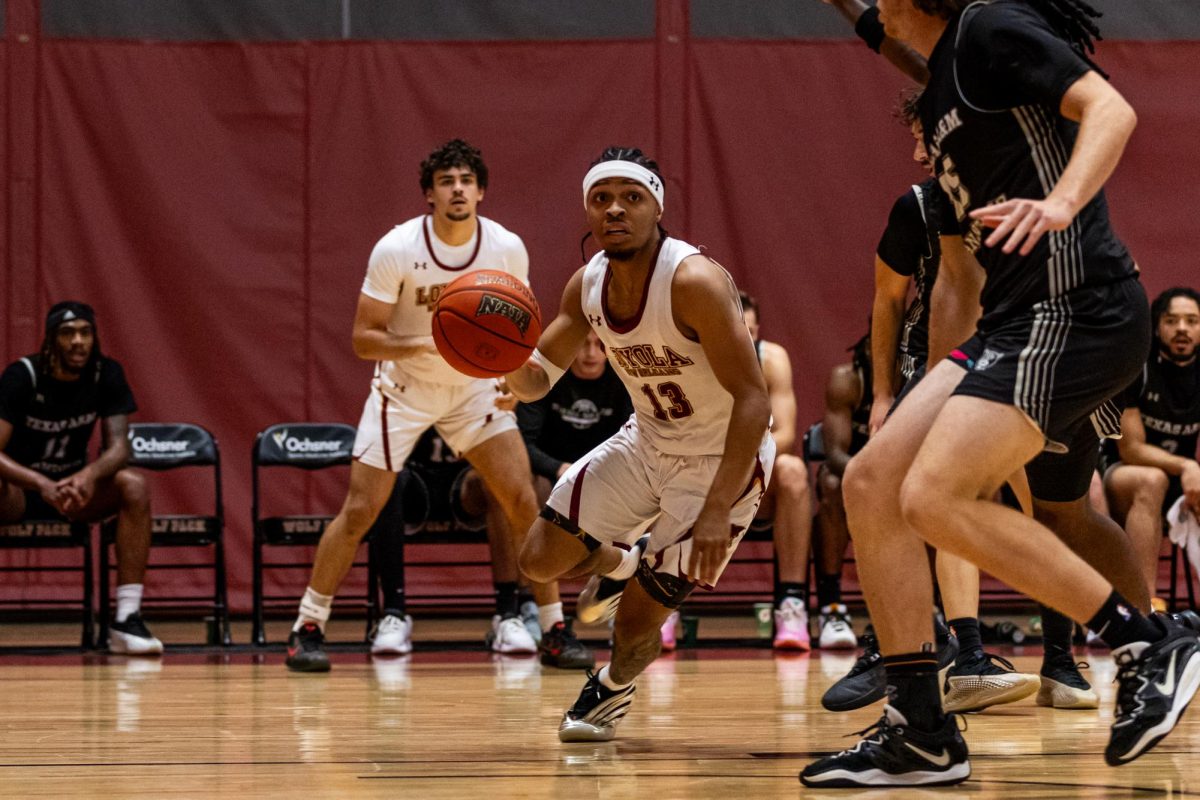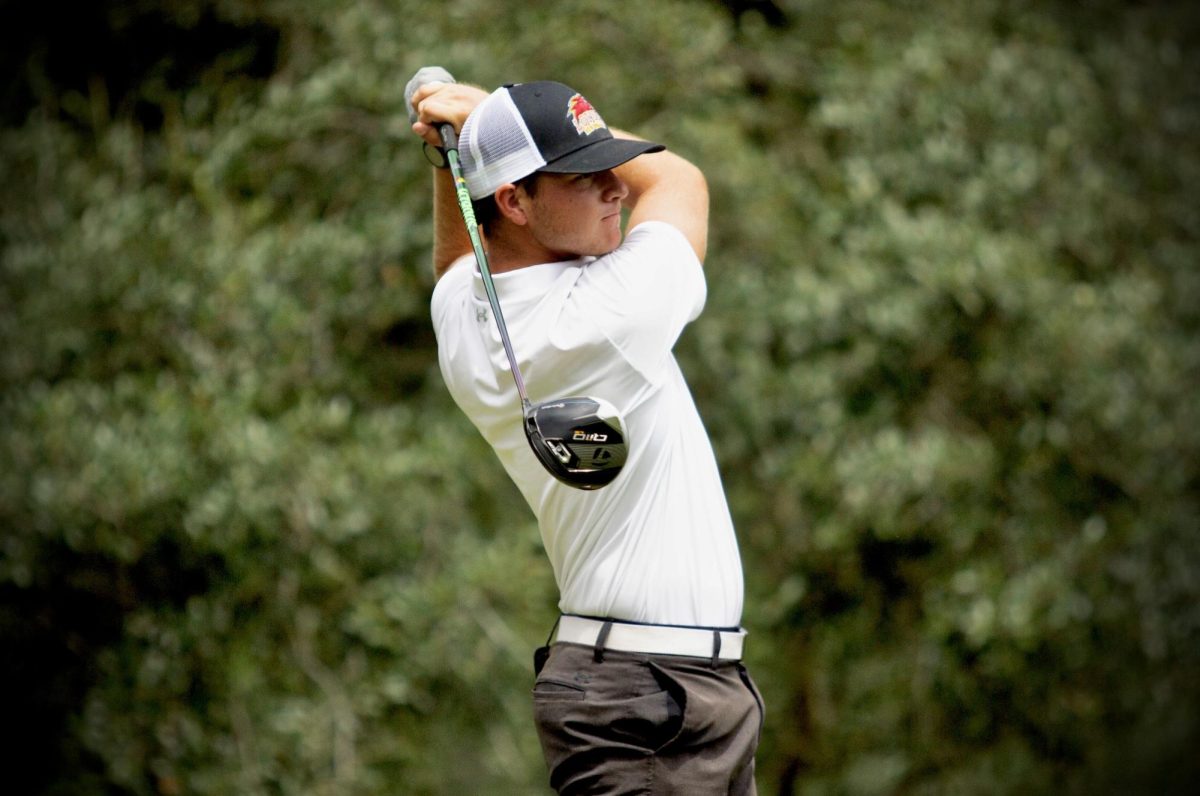The room hums with the low buzz of computers and the rapid clicking of keyboards. Headsets are on, eyes are locked in, and every player is fully focused on the match unfolding on their screens. It’s not just a game, it’s practice.
Loyola’s esports team gathers multiple times a week to sharpen their skills, strategize, and build the teamwork needed to compete at a high level. While many students see only the highlights reels, flawless players, and tournament victories, behind the scenes lies hours of preparation, communication, and focus.
Sam Spiegel and Malachi Lee, members of the Smash Bros. team, along with Overwatch teammates Maya Hernandez and Mason Wheaton, may play very different games, but their dedication and competitive drive are the same.
The Super Smash Bros. players practice through intense one on one matchups focusing on each individual player for self-growth and improvement.
“We meet with our online coach once a week to figure out what we need to work on, then we spend time focusing on that as individuals,” Spiegel said.
Though the Smash Bros. team differs from the others by being individual based, with no communication during matches, they’re just as important as the other teams.
“The Smash team is a team but the game is played as an individual. We just take turns playing as a team,” Lee said.
The Overwatch team is different; it requires much more teamwork and communication.
“Practice officially starts at 6:30 pm, but practices against other teams starting at seven once a week or once a month depending on how beneficial it is to us,” Hernandez said.
The team’s practice sessions aren’t just about gameplay—they’re about strategy, communication, and improvement. Between matches, players analyze what went right and what could be better, treating every scrimmage as a learning opportunity.
“We typically review gameplay footage if we have an important match coming up,”Wheaton said. “It could be before a match or after.”
Every member of the team has a specific role to play, from damage dealers to supporters, and success depends on how well they coordinate those roles in real time. Team chemistry is key, and much of their success comes from the conversations that happen before and after each match.
“Communication is a big part of our game since everyone plays a different role. We come together before a match and discuss what we need to work on, what we have worked on, and how to implement it in our game,” Wheaton said.
When it comes to big competitions there’s no question about nerves but the teams make sure to remember that this is something that they enjoy in their free time away from classes.
“I hate to be that person, but it’s really just a game,.” Hernandez said.
Spiegel’s mindset reflects the broader approach of the team: balancing competitive drive with passion for the game. Even under the pressure of tournaments, the players emphasize improvement, communication, and keeping the game enjoyable.
“When going into a big competition it’s just like ‘I’m going to try my best , play my best, and I’m just going to have fun with it,.” Spiegel said.
Whether it’s the precision and adaptability of Smash Bros.. or the communication and teamwork of Overwatch, Loyola’s esports players share a common goal: to improve with every practice, represent their university with pride, and have fun.
For these student-athletes, esports is more than competition, it’s community, strategy, and the pursuit of excellence, one match at a time.


